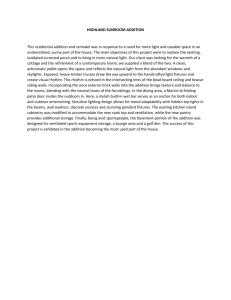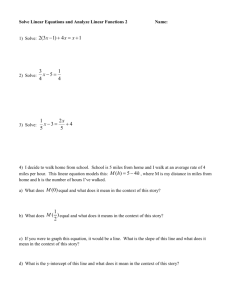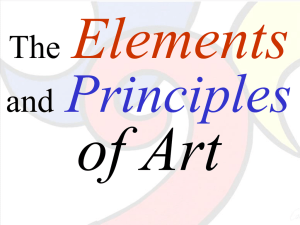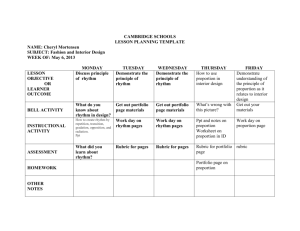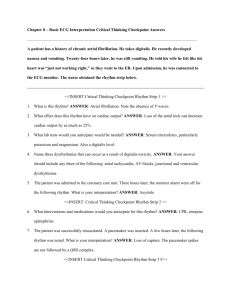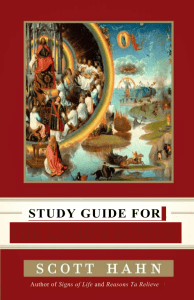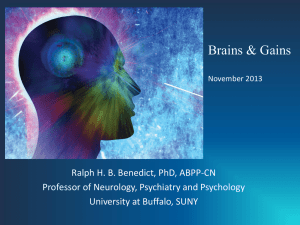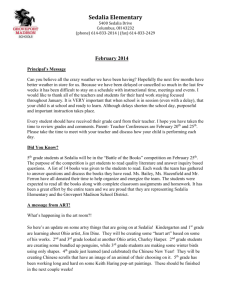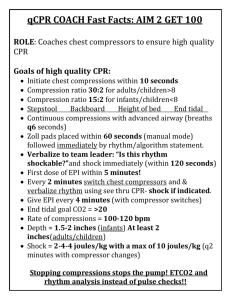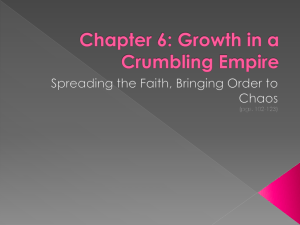Love has its speed - Emmaus Community of St Benedict
advertisement
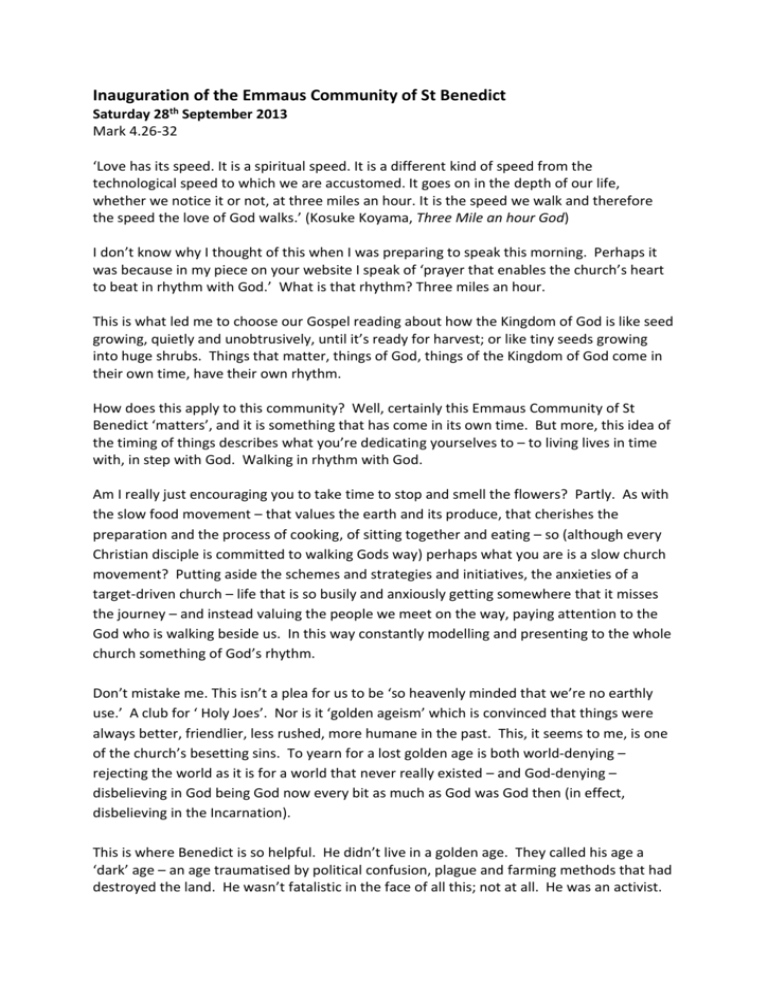
Inauguration of the Emmaus Community of St Benedict Saturday 28th September 2013 Mark 4.26-32 ‘Love has its speed. It is a spiritual speed. It is a different kind of speed from the technological speed to which we are accustomed. It goes on in the depth of our life, whether we notice it or not, at three miles an hour. It is the speed we walk and therefore the speed the love of God walks.’ (Kosuke Koyama, Three Mile an hour God) I don’t know why I thought of this when I was preparing to speak this morning. Perhaps it was because in my piece on your website I speak of ‘prayer that enables the church’s heart to beat in rhythm with God.’ What is that rhythm? Three miles an hour. This is what led me to choose our Gospel reading about how the Kingdom of God is like seed growing, quietly and unobtrusively, until it’s ready for harvest; or like tiny seeds growing into huge shrubs. Things that matter, things of God, things of the Kingdom of God come in their own time, have their own rhythm. How does this apply to this community? Well, certainly this Emmaus Community of St Benedict ‘matters’, and it is something that has come in its own time. But more, this idea of the timing of things describes what you’re dedicating yourselves to – to living lives in time with, in step with God. Walking in rhythm with God. Am I really just encouraging you to take time to stop and smell the flowers? Partly. As with the slow food movement – that values the earth and its produce, that cherishes the preparation and the process of cooking, of sitting together and eating – so (although every Christian disciple is committed to walking Gods way) perhaps what you are is a slow church movement? Putting aside the schemes and strategies and initiatives, the anxieties of a target-driven church – life that is so busily and anxiously getting somewhere that it misses the journey – and instead valuing the people we meet on the way, paying attention to the God who is walking beside us. In this way constantly modelling and presenting to the whole church something of God’s rhythm. Don’t mistake me. This isn’t a plea for us to be ‘so heavenly minded that we’re no earthly use.’ A club for ‘ Holy Joes’. Nor is it ‘golden ageism’ which is convinced that things were always better, friendlier, less rushed, more humane in the past. This, it seems to me, is one of the church’s besetting sins. To yearn for a lost golden age is both world-denying – rejecting the world as it is for a world that never really existed – and God-denying – disbelieving in God being God now every bit as much as God was God then (in effect, disbelieving in the Incarnation). This is where Benedict is so helpful. He didn’t live in a golden age. They called his age a ‘dark’ age – an age traumatised by political confusion, plague and farming methods that had destroyed the land. He wasn’t fatalistic in the face of all this; not at all. He was an activist. He made a difference. And whilst the communities he created drew apart physically in one sense, yet they remained within the world in another. For Benedict, in giving himself to prayer discovered that he couldn’t escape the world but rather learned to see it through God’s eyes. It was a very different context from our own, and the community he created was a very different kind of community – but that word ‘community’ is nevertheless vital. For community implies accountability, it implies solidarity and support. For when we start to see as God sees, and hear as God hears, we begin to discover what needs to be changed. That indeed the whole world needs to be transformed starting with you and me. Change is hard; it is costly; it can be isolating and even frightening. As sisters and brothers you are given to one another, to hold on to one another, to support, to lift up, to hold back, to spur on. You are given to each other as a constant reminder that following Christ is never done alone and that the Christian life begins and ends in relationship. And that it’s these relationships within community that keep alive the rumour of God, that sustain God’s subversive values. I’ve just been reading a book about the two sides of the brain. It emphasizes that the two sides are different and that this is vital for producing a well-balanced individual. The thing that really struck me, however, was this wonderful quote, ‘If there is to be harmony, there must first be difference’. (Iain McGilchrist, The Master and his Emissary) This community like any true community will be built on, will respect, will celebrate your differences – and this means that as we learn to move at God’s speed and follow God’s beat we find that the rhythm of God isn’t a march where we all walk in step but a dance where there is a much more exciting choreography. And as we dance we find others drawn in by the allure of God’s music. So, I can’t overstate the potential significance of what we’re about today. A small seed is being sown but, as Jesus reminds us, from the smallest of seeds great mustard trees can grow offering home to some, shelter to others. Or, as St Benedict discovered, a small seed in God’s care can grow up to transform the world. Am I getting carried away with my own rhetoric here? Am I asking too much of you or expecting too much? Don’t worry, for ‘Love has its speed…. It’s the speed we walk and therefore the speed the love of God walks. All that’s asked of us is to keep walking at 3 miles an hour… and if we find that hard, 2 miles an hour will do. John Armes
